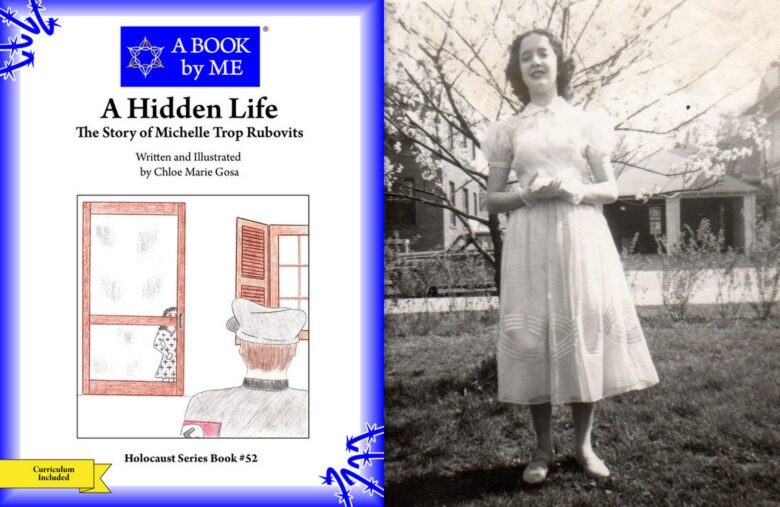A Hidden Life
The Story of Michelle Trop Rubovits Jewish Holocaust Survivor
Written and Illustrated by Chloe Marie Gosa
For the series A BOOK by ME - True Stories Written by Kids for Kids
My colleague and friend Dr. Marrietta Castle was good friends and neighbors with Michelle Rubovits. It was her granddaughter Chloe who beatitfully wrote and illustrated this story for young readers. As I became familiar with Michelle’s story, I couldn’t imagine not being able to protect my child.
Sadly, the hatred of the Nazis created desperate times for Jewish parents. Desperation, fear and heartbreak had to be part of this mother’s very difficult decision to leave Michelle behind. Thankfully, there was a happy ending with the family reuniting after the war. This story reminds us of the sacrifices made by those who were hated and also by ordinary citizens who did the right thing (protecting Jewish children) at the risk of their own lives.
Deb Bowen
A BOOK by ME
“I wanted to tell the true story that follows to remind you that during the Holocaust years many Jewish parents made sacrifices to insure that their children remained happy and safe. Michelle’s story is about how her mother and father shielded her from the terrible events swirling about her when she was too young to even understand.
This story came to me through my grandmother and her neighbors, Michelle and Chuck Rubovits. I think it needs to be told in order to appreciate how good we have it in America. As you read this story, I also hope you grow in appreciation of your parents and all they do for you.”
Chloe Marie Gosa
Author and Illustrator
Michelle Trop Rubovits – Jewish Holocaust Survivor
When Michelle Trop was born on June 2, 1938, her family was living in the small village of Orleanais, France, located about 30 miles southwest of Lyon. Her parents, Sonia and Jacob Trop, had moved to southern France in 1936. Before that, they had lived in Grodno, Poland. Jacob’s and Sonia’s families had lived in Poland for many generations. Jacob’s father, his grandfather, and all his uncles had been bakers there. Although Jacob made a living in Orleanais as a plumber, Michelle later recalled how good he was at baking because he grew up around bakers. She especially remembered that he made a wonderful jelly roll treat for Rosh Hashanah each year after the war.
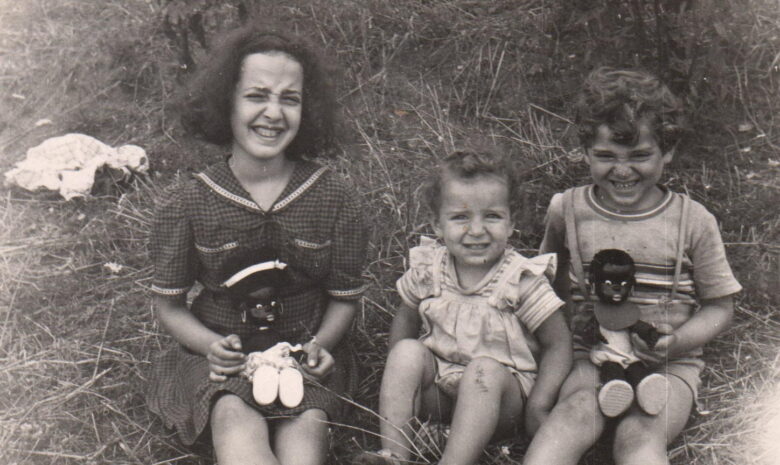
Michelle, sister Annick & brother Charles
As more and more restrictions were being placed on their lives as Jews living in Poland, the Trops began to think of leaving. Riots in that country reflected a growing anti-semitism, and when Hitler took over Germany, they heard about the horrible things that were happening to the Jews there. So, when the Trops moved to France, they thought they would be avoiding many of these problems. In the early 1930s, even before the Trops moved to France, two of Sonia’s aunts immigrated from Poland to the United States with their families, in order to escape persecution.
Between 1936 and 1939, life for the Trop family in Orleanais was a happy one. Jacob’s business as a plumber was going well, and Sonia enjoyed being a homemaker, caring for baby Michelle. Their home was in a two-story, C-shaped building, with Jacob’s plumbing shop downstairs and the living quarters upstairs over the shop. Michelle remembers that beautiful flowerboxes were situated in every window across the top floor.
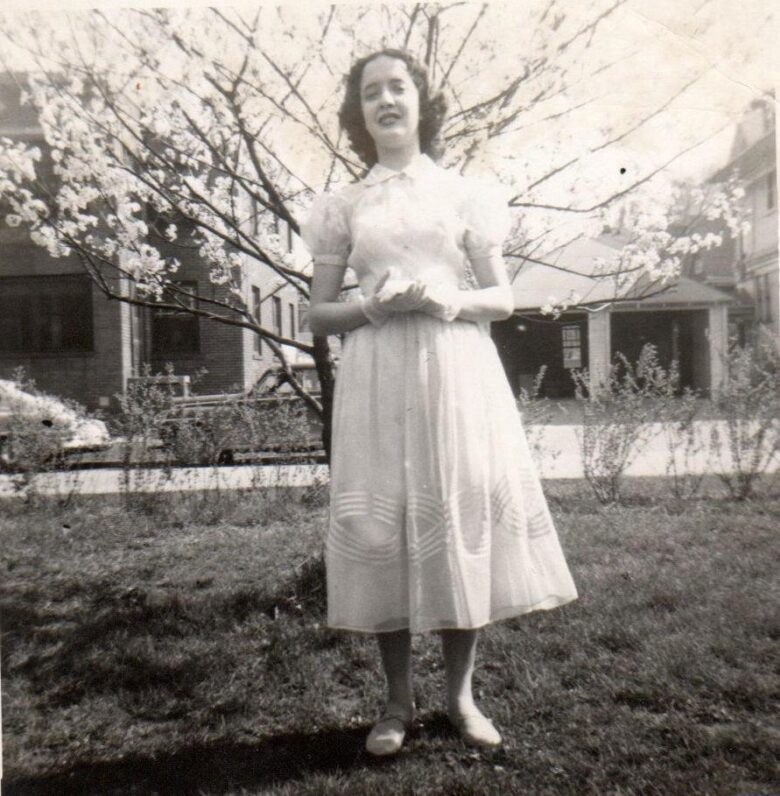
Michelle Trop Rubovits
When German troops invaded Poland in the fall of 1939, Britain and France declared war on Germany. Jacob became increasingly concerned that France would fall under Nazi rule, which it eventually did. Of course, being Jewish meant the possibility of being sent to a concentration camp or being killed outright. At that time, he decided to go underground and join the French resistance, so he arranged for Sonia and baby Michelle to live with a Catholic family on a remote farm in the French countryside.
Michelle was only one year old when she arrived at the farm with her mother, so she was too young to even remember having lived in Orleanais before the war. She and her mother remained on the farm for the next six years. Her earliest memories are of life on the farm. The farmer’s wife treated Sonia and Michelle as part of her family and told Nazi soldiers, when they came to inquire, that both husbands were away fighting in the French army. In order to protect Michelle and her own life, Sonia didn’t tell Michelle much about her father or even that she was Jewish. Sonia knew that if Michelle were questioned by anyone about these matters, she could answer truthfully without any knowledge of either. That’s why, when Michelle was questioned about her father by a Nazi soldier who came to the farm, she answered, “I haven’t seen my father in a very, very long time.”
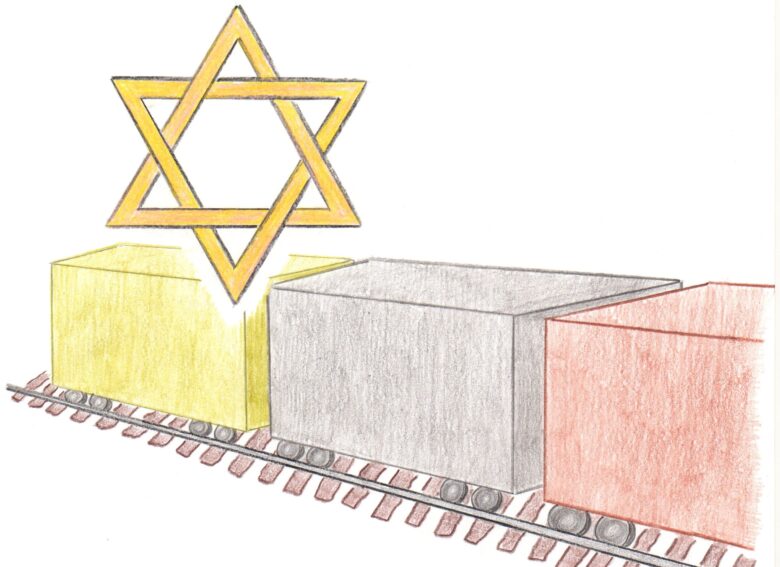
Jacob visited Sonia at night several times over those six years, without Michelle ever knowing that he came and went. She happily played around the farm, climbing cherry trees in the orchard and taking care of her baby brother, Charles, who was born on November 10, 1942. Michelle remembered running to hide in the cherry orchard when her baby brother, whom she was supposed to be watching over, fell down an outside stairway. He was not badly injured, but Michelle knew she would be blamed for his fall. After her father returned in 1945, Michelle learned that Jacob had hidden in a cherry tree at one time to avoid being discovered by the Nazi soldiers who visited the farmhouse.
Although Michelle’s father rarely mentioned his activities while fighting with the French Underground, he did tell a story about being captured one day along with some of his fellow partisans. They were put into a camp and then were forced to march in a line to what he thought was likely certain death. Realizing what was going on, he began looking for a way out. As the line moved past a small, wooden building, he noticed that a plumber had left his tools and coveralls behind. Carefully sneaking out of the line, he put on the coveralls, picked up the tools and some pipes lying nearby, and walked out of the camp right under the noses of the guards.
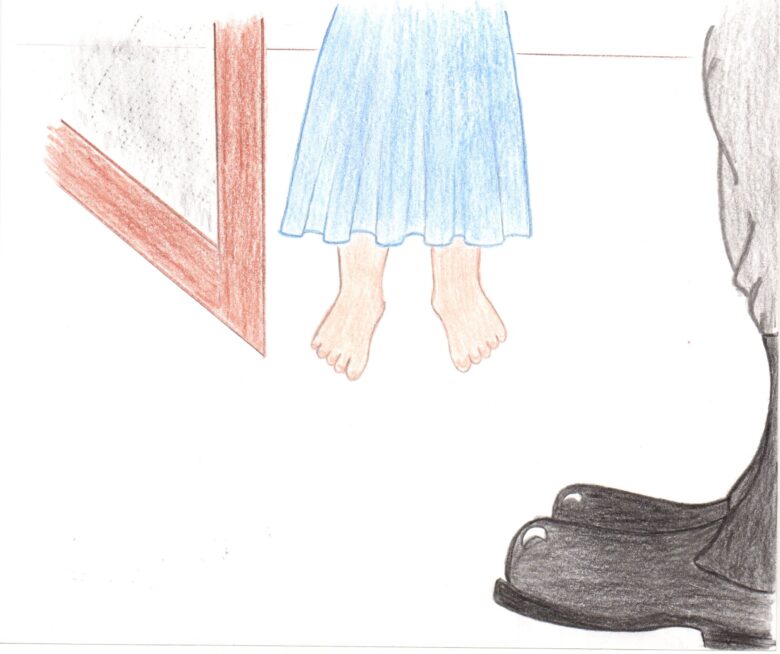
In the spring of 1945 when World War II ended in Europe, the Trop family moved back to Orleanais to resume their life together there as a family. At seven years old, Michelle found out all about her father. Her first memory of discovering that she was Jewish was when the family celebrated Passover that spring, and her father brought out the Matzoh. She knew nothing about Passover, had never seen Matzoh before, and had not tasted chicken soup with matzo balls, like Sonia prepared. From that time onward, her family celebrated the Jewish holidays and Michelle began to learn Hebrew.
Spring of 1945 was also when Sonia’s cousin, Mitchell, came to visit the family in Orleanais. He was the son of one of Sonia’s aunts who had immigrated to the United States from Poland in the early 1930s. Michelle remembered being in awe of this handsome American soldier when he visited her home, but she was also confused at first when she heard Sonia call him by name and give him a big hug. His visit was a most happy reunion, but Michelle couldn’t understand what was said at that time because her parents spoke Yiddish, a language similar to German used mostly by Jews from Eastern Europe. Mitchell had obviously learned Yiddish from his parents. Otherwise, he would not have been able to communicate with Sonia and Jacob at that first meeting. Michelle later learned that her parents also spoke Polish, Russian, and German, and they read Hebrew.
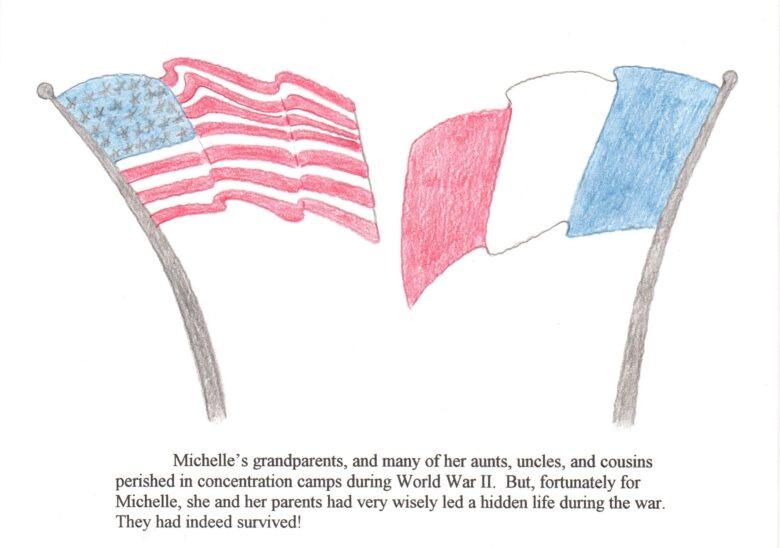
With the help of Mitchell’s family in America as sponsors, the Trop family, including Jacob, Sonia, Michelle, Charles and another daughter, Annick, born October 11, 1946, were able to immigrate to the United States in 1950. Today, Michelle lives in Joliet, Illinois with her husband of 53 years, Rabbi Charles Rubovits. Before moving to Joliet, they lived in Rock Island, Illinois for many years, raising their two sons, David and Robert. They have four beautiful grandchildren: Sara Brinna, Yaakov, Kyle and Eve.
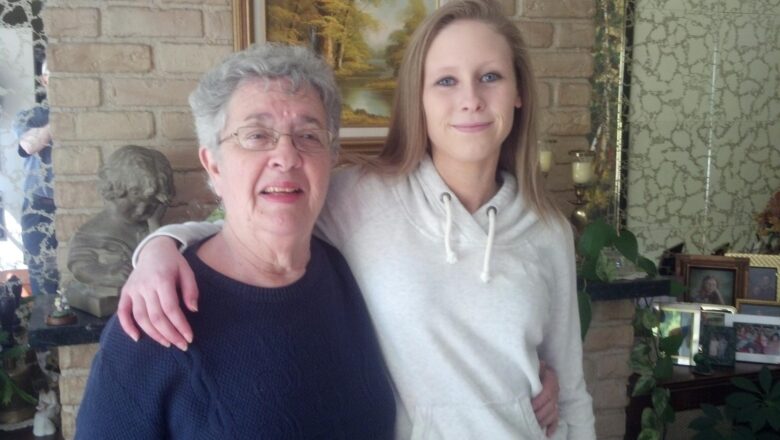
Michelle Trop Rubovits & Author-Illustrator Chloe Marie Gosa
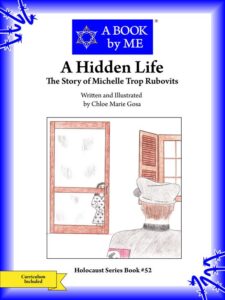 A Hidden Life
A Hidden Life
A Catholic family hid one-year-old Michelle Tropp, and her mother on their farm in France when the Nazis invaded their country. Michelle’s father Jacob left them and became part of the French Resistance.
A BOOK by ME, a book series developed by Deb Bowen, empowers students to preserve history by telling the story of unsung heroes in our communities. For the young participants, it’s a guided cross-curricular project that gathers stories of people who do amazing things but have received little or no recognition. Students learn how to publish a picture book that is a primary source document with photographs and a biography.
Since 2003, Deb Bowen has been arranging meetings between students and individuals from the WWII generation. This intergenerational storytelling results in unique storybooks written and illustrated by kids for kids in the A BOOK by ME series. More about Deb Bowen >

